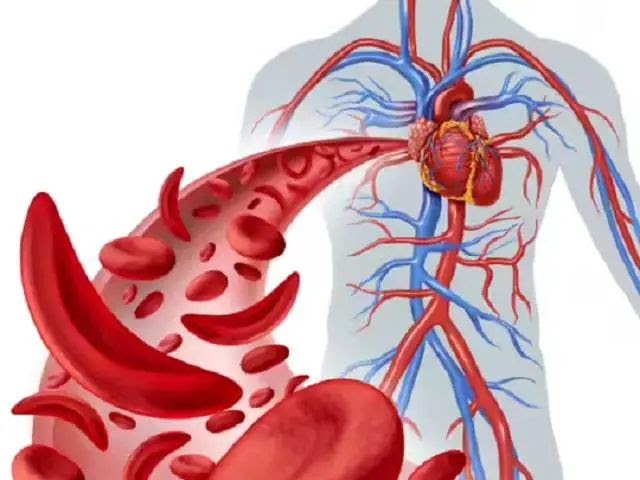You must have heard many times that it is very important for thin and clean blood to flow in the body. But do you know that deficiency of some things can cause our blood to thicken? When blood becomes thick, it cannot flow easily through the veins of the body.
This can cause serious problems like heart attack, stroke and blood clotting. Let us know why this happens and how we can avoid it.
Why does blood thicken?
Our blood should have the right ratio of red blood cells, platelets and plasma. When this ratio deteriorates, the blood becomes sticky and thick. There can be many reasons behind this, but the biggest reason is the lack of certain nutrients. When these things decrease in the body, the quality of blood gets affected and it starts becoming thick.
Blood thickens due to lack of these things
lack of water
When there is lack of water in the body, the blood volume decreases. Due to this the blood becomes thick and flows slowly in the veins. You must have noticed that in summer or when we drink less water, we feel tired and weak. One reason for this could also be thickening of the blood.
iron deficiency
Iron helps in making hemoglobin in our body. Hemoglobin is the thing that transports oxygen from the lungs to every part of the body. When there is iron deficiency, less hemoglobin is produced and the oxygen level in the blood falls. Due to this the blood becomes thick and we may have trouble breathing.
Vitamin B12 and folate deficiency
Both these vitamins help in making red blood cells in our body. When there is a deficiency, red blood cells are not formed properly. Due to this, the quality of blood deteriorates and along with thickening of blood, the risk of clotting also increases.
Omega-3 fatty acid deficiency
Omega-3 fatty acids are a nutrient that helps keep the blood thin. It makes blood flow smooth. When there is a deficiency of Omega-3 in the body, the viscosity of the blood increases and it starts thickening.
Vitamin E deficiency
Vitamin E is a natural blood thinner. It prevents blood clotting. When there is a deficiency of Vitamin E in the body, the blood starts clotting quickly and the risk of thrombosis (blood clotting) increases.
The risk of these diseases increases
When the blood becomes thick, it opens the door to many serious diseases:
Heart Attack: Thick blood can cause blockage in the arteries of the heart, increasing the risk of heart attack.
Brain Stroke: A blood clot can reach the brain and block blood flow, causing a stroke.
Deep Vein Thrombosis (DVT): This is a condition in which a blood clot forms in the veins of the legs.
High blood pressure: Thick blood puts extra pressure on the arteries, which can increase blood pressure.
protect yourself like this
We can take some easy measures to avoid thickening of blood.
Drink enough water: Drink at least 8-10 glasses of water daily. Increase this quantity in summer.
Eat a balanced diet: Be sure to include green vegetables, fruits, fish and dry fruits in your plate.
Don’t ignore nutrients: Eat foods rich in iron, vitamin B12, folate and omega-3.
Stay away from harmful habits: Avoid smoking and alcohol consumption.
Do regular exercise: A daily 30-minute walk or light exercise improves blood flow.
Keep weight under control: Obesity can also be a reason for thickening of blood.
What do doctors say?
“Blood thickening is not a light problem. When there is a lack of water or essential nutrients in the body, the risk of blood clotting increases manifold. People should avoid dehydration, take a balanced diet and keep getting regular health checkups done. If symptoms like fatigue, shortness of breath or chest pain appear, one should immediately contact a doctor.”
Thickening of blood is a dangerous condition which can lead to many serious diseases. Lack of water, vitamins and essential nutrients is the main reason for this. But the good thing is that we can reduce this risk by adopting a balanced diet and healthy lifestyle at the right time. Understand your body’s signals and seek doctor’s advice if necessary.
Disclaimer: This information is based on research studies and expert opinion. Do not take this as a substitute for medical advice. Before adopting any new activity or diet, consult your doctor or relevant specialist.
